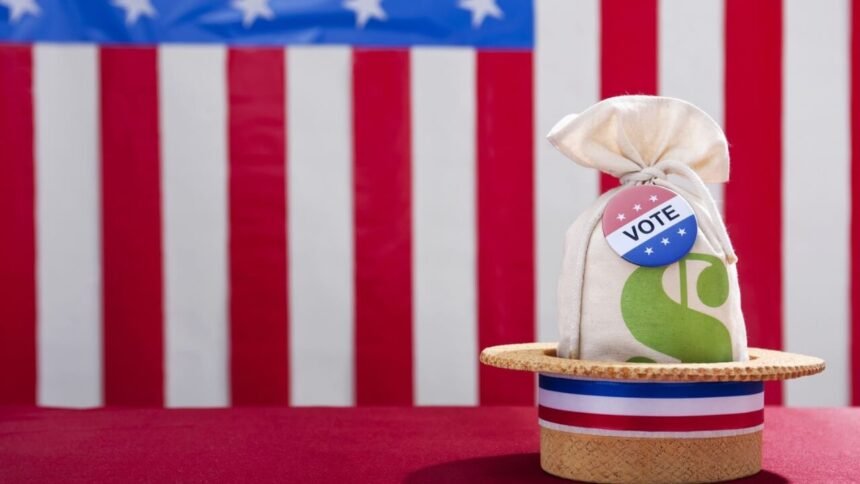Political Action Committees (PACs) have become an integral part of the American political landscape, shaping the way elections are won and policies are influenced. These organizations play a significant role in both federal and state elections by raising and distributing funds to support or oppose political candidates, legislation, and policies. The keyphrase “political action committee” not only refers to the groups that collect and disburse donations for political purposes but also symbolizes the immense power and influence that money can wield in the political system.
In recent years, PACs have expanded in scope and influence, especially with the rise of Super PACs, which can raise unlimited sums of money from individuals, corporations, and unions. This dynamic has sparked debates about the ethical implications of money in politics and the extent to which PACs impact the democratic process. In this article, we’ll delve into the history, functionality, and growing influence of PACs, while exploring their role in the evolving political landscape of the United States.
What is a Political Action Committee?
A Political Action Committee (PAC) is a type of organization formed to raise and spend money to influence the outcome of elections. The primary function of a PAC is to support candidates, parties, or legislation that align with its interests or to oppose those that do not. The key distinguishing feature of a PAC is its ability to pool contributions from multiple individuals or organizations and then distribute those funds to campaigns or political causes.
PACs were first formed in the 1940s, largely in response to concerns about the ability of big business to dominate political campaigns. Over time, these committees evolved into significant players in the electoral process, and today, there are thousands of PACs operating at various levels of government.
The key function of a PAC is to channel money into the political system in a way that supports a particular agenda. This is typically done through direct contributions to political candidates, which can range from local campaigns to presidential elections. PACs can also spend money on independent expenditures, such as advertisements, to sway public opinion and influence elections without directly coordinating with candidates.
The Rise of Super PACs
In recent years, Super PACs have revolutionized the landscape of political fundraising. A Super PAC, or “independent expenditure-only committee,” is a type of PAC that can raise and spend unlimited amounts of money, as long as the funds are not used to directly contribute to or coordinate with a political candidate’s campaign.
The rise of Super PACs began with the landmark Supreme Court case, Citizens United v. FEC (2010), which ruled that restrictions on independent political spending by corporations and unions violated the First Amendment’s guarantee of free speech. This decision allowed corporations, unions, and individuals to contribute unlimited funds to Super PACs, which in turn could influence elections through media buys and other independent expenditures.
As a result, Super PACs have grown exponentially in power, with some organizations raising hundreds of millions of dollars to influence political outcomes. The influence of Super PACs has been a topic of significant debate, with critics arguing that these organizations allow wealthy individuals and corporations to exert undue influence over the political process, undermining the democratic principle of “one person, one vote.”
How Political Action Committees Influence Elections
The role of Political Action Committees in elections is undeniable. By providing financial support to candidates, PACs help ensure that those who share their ideological views can compete effectively in the electoral process. This funding can make a crucial difference, particularly in highly competitive races where candidates are vying for limited resources.
For instance, PACs often fund television ads, digital marketing campaigns, and grassroots efforts to mobilize voters. By injecting money into these efforts, PACs ensure that their preferred candidates or policies get the visibility they need to sway public opinion. In many cases, PACs work in tandem with political consultants and media agencies to craft strategic messaging aimed at persuading key voter demographics.
Furthermore, PACs also provide a financial safety net for candidates who might otherwise struggle to fund their campaigns. By pooling contributions from individuals, PACs enable candidates to reach a broader audience and compete more effectively in elections, particularly those with high-profile races.
Despite their significant influence, PACs are subject to strict regulations that dictate how much money they can accept from donors and how they can spend it. However, the rise of Super PACs has effectively sidestepped many of these regulations, allowing for an influx of cash into the political system that has made a noticeable impact on modern elections.
The Ethical Debate Surrounding Political Action Committees
The increasing dominance of PACs and Super PACs has sparked a growing ethical debate about the role of money in politics. Proponents of PACs argue that these organizations are a crucial part of the democratic process, providing a platform for individuals and groups to have their voices heard in the political arena. According to political scientist and expert, Dr. Sarah Miller, “PACs provide a necessary function in the political process, particularly when they allow for broader participation by smaller donors and interest groups.”
However, critics contend that PACs, particularly Super PACs, distort the political process by giving undue influence to wealthy individuals and special interest groups. They argue that the flood of money into elections creates an uneven playing field, where the candidates with the most funding often have the greatest chance of success, regardless of their ability to connect with voters on issues of substance.
Furthermore, there is concern that PACs contribute to the growing polarization in American politics. By focusing heavily on issues that divide the electorate, some PACs exacerbate ideological divides, making it more difficult for elected officials to reach bipartisan agreements.
Regulatory Framework and Legal Constraints
While the influence of PACs is undeniable, they operate within a complex legal and regulatory framework designed to ensure transparency and limit the potential for corruption. The Federal Election Commission (FEC) plays a critical role in overseeing PAC activities, enforcing rules that govern campaign finance, and ensuring compliance with federal election laws.
These regulations include limits on how much money PACs can accept from individual donors, as well as restrictions on direct contributions to political candidates. For example, a traditional PAC can only contribute a limited amount of money directly to a candidate’s campaign. On the other hand, Super PACs are not subject to these limits but must operate independently of candidates’ campaigns to avoid illegal coordination.
Despite these regulations, critics argue that PACs and Super PACs still have an outsized influence on the political process. The sheer volume of money flowing into elections raises questions about the ability of ordinary voters to compete with the influence of large corporations and wealthy donors.
Conclusion: The Future of Political Action Committees
As political action committees continue to evolve, it is clear that they will remain a powerful force in American politics. Whether you view them as an essential part of the democratic process or as a source of corruption and undue influence, their presence in elections is undeniable. In an era where money plays an increasingly important role in politics, understanding the power and function of PACs is more important than ever.
The rise of Super PACs has dramatically shifted the balance of power in American politics, creating new opportunities and challenges for candidates and voters alike. As PACs become more sophisticated and influential, it remains to be seen how they will continue to shape the future of American democracy. Will they lead to a more participatory and inclusive political system, or will they further entrench the influence of the wealthy elite? Only time will tell.
you may also like
Democratic Party Views on Foreign Issues: A Comprehensive Analysis






